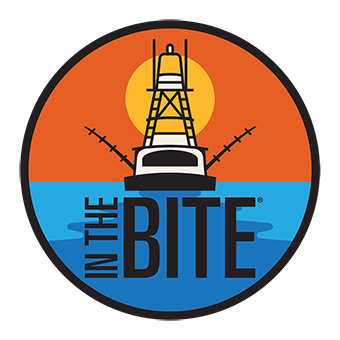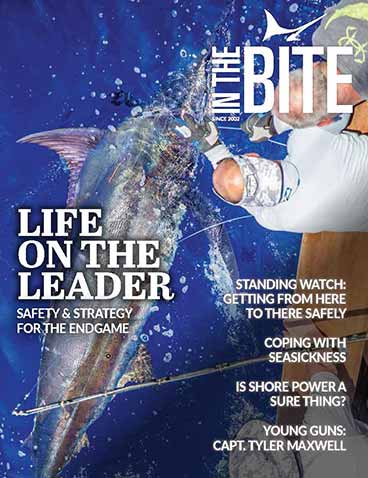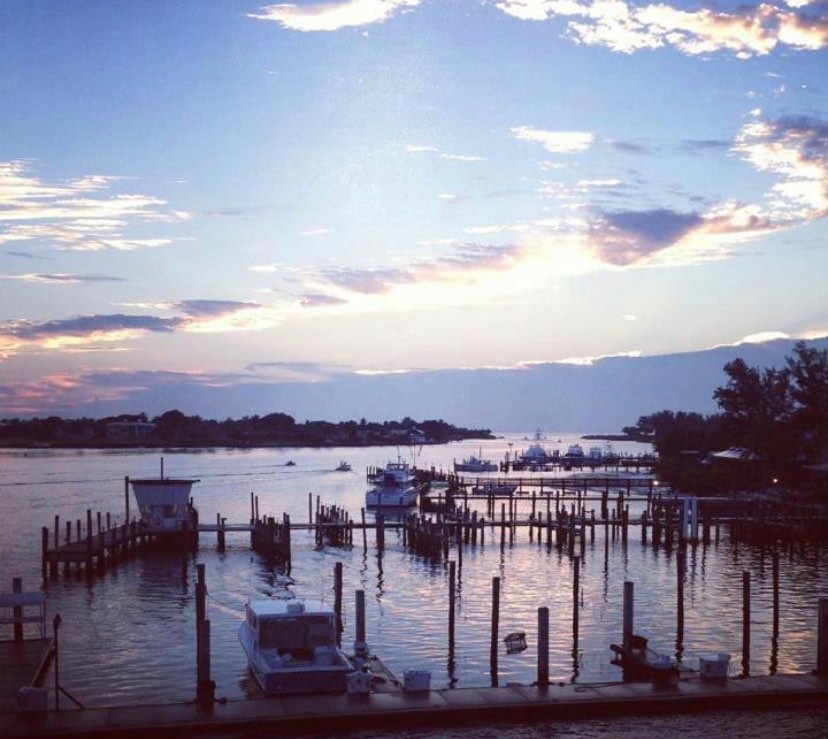If you are reading this and are on social media, Id bet a full tank of fuel that you follow The Qualified Captain. I dont know about you, but I had no idea so many trucks sank at the boat ramp or how many boating accidents occurred, and that is coming from someone (me) who represents injured individuals in boating and maritime accidents.
Rightfully so, most people are not aware of what to do when something bad happens on the water, whether that is a collision, missing diver, prop strike, hard grounding, the list goes on. These situations are known as marine casualties, and the term casualty does not necessarily mean death in this situation.
Let start with the basics, what is a marine casualty? A marine casualty is defined in Title 46 Code of Federal Regulations (CFR), Part 4.03-1. Essentially, it is a casualty or accident involving a vessel, any vessel other than a public vessel, that occurs on the navigable waters of the U.S. The term marine casualty or accident applies to many different situations. This includes, but is not limited to someone falling overboard, injury or death (which includes diving from a vessel) and any occurrence involving a vessel such as a collision, allision, explosion, fire, etc.
Ok, now something bad has happened, and although it may or may not be your fault, what next!? First off, if someone is hurt or missing, you need to request help ASAP. Even if you are in cell phone range, use the VHF. Cell phones can be fickle and connect you to a 911 dispatcher that might not be in your area. A mayday over 16 goes directly to the USCG.
Issue the mayday and do the best you can, hopefully no one is ever in that position. Alright, the incident is over, now what? After being involved in a marine casualty you will need to report what happened.
The operator of the vessel must submit the casualty or accident report to the nearest reporting authority when, as a result of an occurrent involving the vessel or its equipment (1) a person dies, (2) a person is injured and requires medical treatment beyond first aid, (3) damage to the vessel and other property exceeds $2,000 or there is a complete loss of any vessel, or (4) a person disappears from the vessel under circumstances that indicate death or injury.
The report must be made within 48 hours of the occurrence if a person dies within 24 hours of the occurrence. And/or within 48 hours of the occurrence if a person is injured and requires medical treatment beyond first air, or disappears from the vessel. And within 10 days of the occurrence or death if an earlier report is not required per the above situations.

ACCIDENT REPORTING
The extent of the contents is laid out in 33 CFR Sec. 173.57. Not to get tied up in legal jargon and federal regulations, but the report includes common sense details such as: number and name of each vessel involved, name and address of each owner of each vessel, body of water, time/date of the casualty or accident, names of operators and number of people aboard (and contact info). Who and what is the nearest reporting authority? Depending on your state and location this information may differ. But usually if you are close to shore or inshore that authority can be the state wildlife agency. Here in North Carolina, it the law enforcement branch of the North Carolina Wildlife Commission. If an accident occurs on the water, they are usually on scene with the USCG, but they can also be contacted via telephone. Additionally, the USCG functions as a reporting authority. Often, if the casualty occurs in state-controlled waters, they will let the state agency take control of the report or investigation, but more often than not there will be documentation from the USCG as well as the state agency. If you, the owner, knows about the incident (and the captain/operator hasnt reported the incident) then you as the owner must submit the report. Here is something they dont tell you in captain school. If you are involved in an incident, it very rarely going to be entirely one party fault. Almost every time the USCG will share the blame amongst the parties, some have more fault than others. But it rare that it ever 100 percent one party fault. If you carefully read the USCG Rules of the Road, you can understand how the broad sense of the rules can apply even if you dont think it your fault.
THE CAPTAINS LIABILITY
Although a state agency may issue the captain a misdemeanor ticket, they should hire a lawyer. Often these tickets can fairly easily be dismissed or reduced as long as the incident wasnt egregious, such as something involving drugs, alcohol, and/or death. It doubtful the USCG will issue any tickets unless something very bad has occurred. There is no online captain database for claims or operator records, the process is more rooted in the honor system. Often, when hired you will need to provide the insurance company with a resume as well as an operator history. It your job to answer and respond honestly, dishonest responses can lead to denials, blacklisting or even criminal charges. Often, insurance carriers will ask for claims within the past three years. Although not set in stone, if you have an incident or blemish on your resume (such as an accident claim”other claims like lightning strikes dont seem to really matter), then itll probably be three years before it drops off the radar. Sometimes the insurance company will pull a motor vehicle record for the captain. Obviously, if you have a bunch of DUI or repeated claims history this will be taken into consideration when insuring the vessel. Usually, when a carrier starts asking about non-standard information, they arent doing it to help you out. As stated, previous claim(s) whether your fault or not, will affect your ability to find coverage. An example given to me was an experienced operator who left his yacht in the water during what was supposed to be an uneventful minor tropical storm. The entire marina remained full, the storm hit the marina perfectly and destroyed and totaled almost every vessel. In this case there wasnt an exclusion for leaving the vessel in the water, but instead left it up to the owner/operator.

Generally, insurance companies will ask captains about claims or accidents within the last three years. Any incidents will be taken into consideration when insuring the vessel.
IF INJURIES OCCUR
First off, get help, if you need it. General maritime law and the Jones Act have many provisions that can be very advantageous to an injured crew member, passenger, or bystander. Make sure you get the medical help you need, document all your treatments. And try to get as much information from the scene of the incident as possible, witnesses have a way of disappearing or becoming difficult to track down. Dont try to be too proud, if you need medical help, get it. If the captain was negligent dont let him or the owner talk you out of a claim. This job is physically demanding enough, you need to watch out for number one. A book could be written on the Jones Act, but in short it provides seamen injured in the course of their employment the right to sue their employer for personal injury damages. Unlike land-based workers, seamen are not entitled to workers compensations, thus the only compensation they are entitled to receive is through the Jones Act and general maritime law. The more information the better as itll help you and/or your attorney be able to resolve or try your case. Remember, if you are injured the insurance company is not on your side. They love to cash your premium checks but arent as willing to give you a fair settlement. Running a boat is like operating a hotel with only one or two employees. You have to keep it running, entertain, clean, keep everyone safe, stay abreast of certifications, organize important (and seemingly mundane) paperwork, and keep the boss happy. It important to know what to do or what process to follow when everything gets turned upside down. I hope no one reading this ever has to use any of this information. But if you do, stay calm and focused, youll come out on the other side ok!
RISK OF COLLISIONS
Automatic Identification System (AIS) and vessel tracking is a great resource that is becoming more prevalent every year. But it still far from a radar replacement. Unlike airplanes that can (for the most part) be tracked via a transponder on an app like FlightAware, most recreation vessels are not equipped with an AIS system. You can search on marinetraffic.com and it becomes very evident that not even close to every vessel on the water is equipped with this technology. Be advised that even if your vessel has the most updated AIS tracking system, chances are the Jon boat, flats boat, small center console operating around you will not appear on your GPS/AIS system. These are the vessels that pose the highest risk of collision, especially when running in the dark. There is no substitute for eyes out front and a working knowledge of your radar and/or FLIR system.













